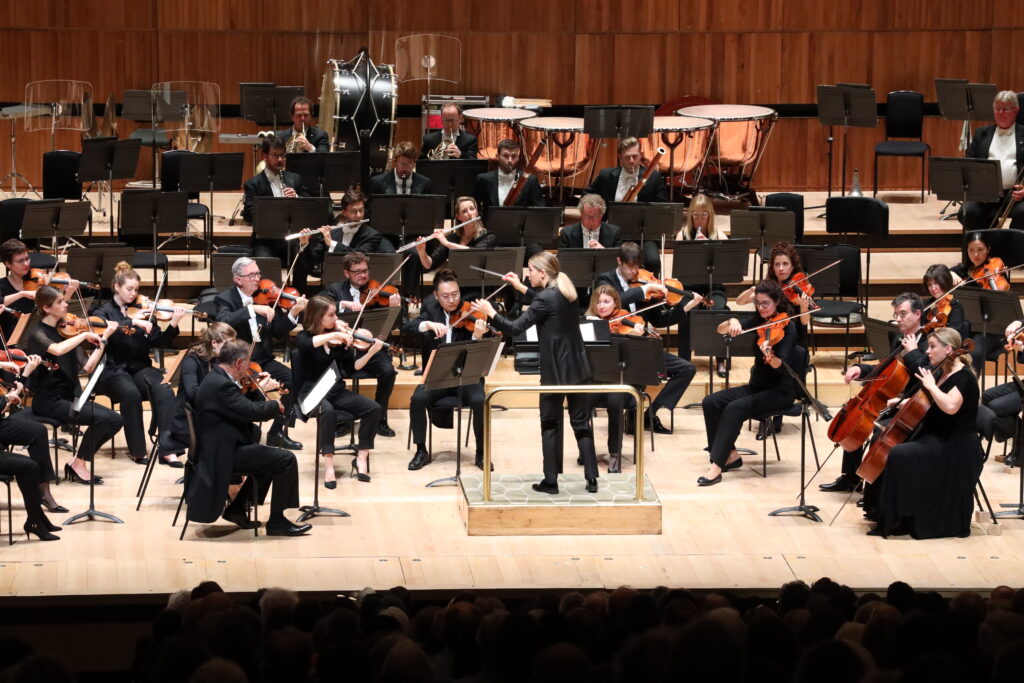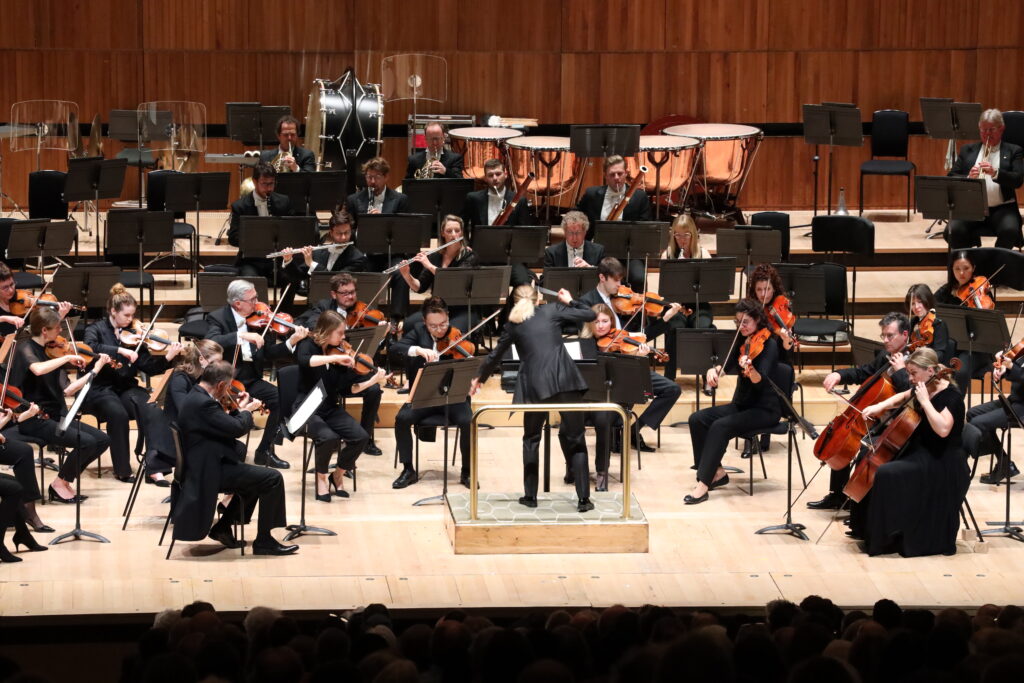
Karina Canellakis strode to the stage, a woman in complete control of a full orchestra, with a no-nonsense approach, her actions brisk and to the point, we were in safe hands.
Born and raised in New York City, she has been Principal guest Conductor of the London Philharmonic Orchestra since 2021. Karina is also a virtuoso violinist, but as a conductor she is one of the greats, as we were about to discover. The concert began with the Overture, Manfred by Robert Schuman which washed over the audience, at times soothing and soporific, at other times, muscular and rousing, a piece with real heft. A short pause, as some musicians left the stage and a small podium was placed beside the conductor. Canellakis returned to the stage followed by a graceful self-effacing man carrying his Cello. This we discover is Truls Mork, born in Bergen, Norway, a compelling Cellist.
Initially taught by his father and is one of the most preeminent cellists of our time, and goodness didn’t he demonstrate it this evening. A champion of contemporary music and he has given over 30 premieres and recorded many of the great cello concertos. This evening, playing Schumann’s Cello Concerto, Mork went on to demonstrate the versatility of his instrument; haunting notes filled the space, mournful then lifted by the strings, transforming into… the beautifully soothing.
I became transfixed when he played without accompaniment, and without sheet music and to see Karina Canellakis’ face… expressive, stern, joyful, alert, at times jumping as though the music could make her defy gravity. Both Canellakis and Mork left the stage and returned as the applause refused to abate. Mork proceeded to take his place as silence fell on the auditorium to be replaced with the haunting notes of the cello. The audience sat, transfixed in pin drop silence, and not just the audience, the orchestra too. We were in the presence of a master, and we knew it.
After the interval we were treated to Bruckner’s Symphony No 4, his ‘Romantic Symphony, with an orchestra so crammed full that I feared for some of the musicians. I think that this would be a good point to heap praise on the playing of the London Philharmonic Orchestra, who never gave less than their all (although there is the question of the mutiny to discuss, which I will come to later). The fourth symphony is in four movements, with clear instructions on how each is to be performed, 1) lively, not too fast, 2) At fairly brisk speed, 3) Not too fast but not dragging 4) Lively but not too fast
The first movement saw the Orchestra in full flow, a tidal wave of sound before once again rising and falling, swelling and exhilarating, revelling in the perfect acoustics of the Royal Festival Hall.

The second movement was gently sweeping pierced by the pizzicato (plucking of strings) and once again, the sweet shrill notes of the flute soared above the sound of the strings followed by the muscularity of the brass section’’ The third movement was cinematic in scale, and could easily have accompanied a blockbuster film. Brass tympany and double base all came into their own sweeping us away, filling the auditorium with sound, only to fall back to gentle lilting soft notes. The fourth movement built to a crescendo, every instrument at full throttle before the melodious strings calmed us and then the music beating like a heart. My notes read, ‘Just beautiful’
Throughout, Canellakis conducted with the control and precision of an Olympic Dressage gold medallist, ably demonstrating her absolute authority over the orchestra. At the end of the concert the audience erupted in rightful applause. This had been a superb concert, and the applause reached a crescendo after coming back to the podium twice, the applause showed no sign of abating and Canellakis bid her orchestra to stand and take their well earned bow. She looked taken aback to see the orchestra resolutely remain seated and once more bid her orchestra to stand, but no, rebellion was in the air, and they had decided that this was her moment. This sharp, taut conductor burst into laughter and then the orchestra stood, and we applauded all the louder.
The current London Philharmonic Orchestra season has been exceptional, (based on the two performances that I have seen, so far.) I list the rest of the season below so that you too can enjoy music at its very best.
Tchaikovsky’s Sixth – 2 Nov 2024. https://lpo.org.uk/event/tchaikovskys-sixth/
Víkingur Ólafsson plays Brahms – 6 Nov 2024.https://lpo.org.uk/event/vikingur-olafsson-plays-brahms/
A Dark Century – 27 Nov 2024.
Swan Lake – 29 Nov 2024, 7.30pm https://lpo.org.uk/event/swan-lake/
Images: London Philharmonic Orchestra
